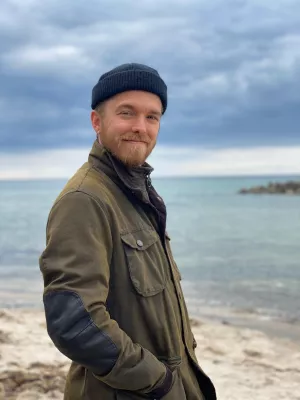
Mads Barbesgaard
Biträdande universitetslektor

The Blue Fix : What's driving blue growth?
Författare
Summary, in English
This article explores the politics behind the promise of ‘blue growth’. Reframing it as a ‘blue fix’, we argue that the blue growth discourse facilitates new opportunities for capital accumulation, while claiming that this accumulation is compatible with social and ecological aims as well. The blue fix is made up of three underlying sub-fixes. First of all, the conservation fix quenches the social thirst for action in the face of climate change. Here we see how protecting marine areas can be an important part of mitigating climate change, but in practice, gains at the national level are overshadowed by the ongoing expansion of offshore drilling for oil and gas. Second, the protein fix satisfies the growing global demand for healthy food and nutrition through the expansion of capital-intensive large-scale aquaculture, while ignoring the negative socio-ecological impacts, which effectively squeeze small-scale capture fishing out, while industrial capture fishing remains well positioned to expand into as well as supply industrial aquaculture with fish feed from pelagic fish. And third, an energy fix offers a burst of wind energy and a splash of new deep-sea minerals without disturbing the familiar and persistent foundation of oil and gas. This dimension of the blue fix emphasizes the transition to wind and solar energy, but meanwhile the deep sea mining for minerals required by these new technologies launches us into unknown ecological territories with little understood consequences. The synergy of these three elements brought together in a reframing of ocean politics manifests as a balancing act to frame blue growth as ‘sustainable’ and in everyone’s interest, which we critically analyze and discuss in this article.
Avdelning/ar
- Institutionen för kulturgeografi och ekonomisk geografi
Publiceringsår
2020
Språk
Engelska
Sidor
31-43
Publikation/Tidskrift/Serie
Sustainability Science
Dokumenttyp
Artikel i tidskrift
Förlag
Springer
Ämne
- Fish and Aquacultural Science
Nyckelord
- Aquaculture
- Blue economy
- Blue growth
- Deep sea mining
- Marine protected areas
- Oil and gas
Status
Published
ISBN/ISSN/Övrigt
- ISSN: 1862-4065

